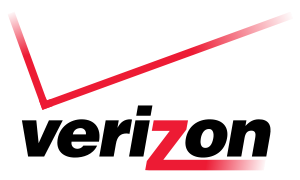

Regulators are supposed to represent citizens' interests while corporations and their lobbyists try to warp politics for personal gain/profit. But right now we find that not even so-called 'regulators' cannot speak for us.
The Internet is the world’s largest shopping mall, library, video store, post office and town square. When you turn on your computer, you’re in the driver’s seat, choosing what you want to read, watch, and hear.
A month or so ago, a PR person sent me a ridiculously misleading (to potentially dishonest) Forbes piece by Ev Ehrlich, former undersecretary of commerce for President Bill Clinton, arguing against net neutrality. The piece was so ridiculous that I asked the PR person whether or not Ehrlich, in his current job as a consultant/think tank person, was working with any broadband providers. The PR person said he didn't know, and I figured I'd just ignore the piece. However, having now listened to a radio debate on KCRW about net neutrality that included Ehrlich making the same basic argument in a discussion with Tim Lee from the Washington Post, Harold Feld from Public Knowledge and Alexis Ohanian of Reddit, it seems worth highlighting just how confused and, well, wrong, Ehrlich is.
On Monday 9th December, the rapporteur Pilar del Castillo Vera (EPP - Spain) will present to the “Industry” (ITRE) Committee of the European Parliament her draft report on Neelie Kroes' proposal for a Regulation on the Telecom Package. Citizens must urge MEPs to amend this report in order to accurately define what qualifies as 'specialised services' with 'enhanced' quality of service, and ensure that the Regulation will guarantee a genuine and unconditional Net neutrality principle.
On September 11th, the European Commission adopted an important legislative package geared to achieve the European Single Market of telecommunication and build thereby a connected continent.
A few days before the deadline for Members of the European Parliament to table amendments on the anti-Net neutrality Kroes' proposal, within the ITRE committee, La Quadrature du Net sent them out its own proposal of amendments. From now and until December 17th, citizens must contact their representatives and urge them to alter Neelie Kroes' proposal and ensure that European citizens can definitely benefit from a genuine and unconditional Net neutrality.
Today we find ourselves at a crossroads: surveillance or privacy? Net neutrality or discrimination of our communications? “Copywrong” threatening the public or copyright reform to sanctuarize our cultural practices? These decisions will have a radical impact on our relationship with technology and power and affect society as a whole. We all know this. And we also know that without a concerted effort by citizens, the political and economic powers will take the line that will lead us to the worst case scenario.